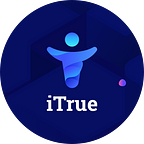Technical progress has made companies extremely vulnerable to hacker attacks, computer viruses, and human factor overall. The issue of information security has become a cornerstone when establishing a successful company.
A leakage of information can lead to serious problems and cause financial losses or even bring a company to its full liquidation.
Years ago, in order to transfer information to third parties, documents had to be printed out and transmit in package. Nowadays all the important data fits on a regular USB flash drive.
According to the statistics, in 68% of cases, the culprits of an information leakage are employees of the company, and that’s due to their inattention and negligence, unlicensed software, third-party applications, or unauthorized copying of company data.
In 2010, the prototype of iPhone 4 was left unattended in a bar by one of Apple’s employees, Gray Powell. There were still months missing before the official release of the gadget. The smartphone, however, was found by a student who sold it for $ 5,000 to journalists of Gizmodo, who later made an exclusive review of the new entry.
The security systems often contain bugs, which hackers try to attack.
One of the largest leaks of personal data took place at the Equifax credit history bureau, US, in July 2017. The intruders got access to personal information of more than 143M clients, and to 209,000 credit card numbers.
The most frequently stolen data is related to personal and payment details.
According to the report of Norton Cyber Security, in 2017 hackers stole 172B dollars from the accounts of 978 million consumers in 20 countries.
Here are some corporate situations in which the risk of data leakage is extremely high:
1. Massive layoffs and reorganization: constant turnover of new employees can weaken vigilance.
2. Business trips: quite often employees going for business trips carry confidential information with them.
3. Work with affiliates and subcontractors: constant exchange of important data.
4. Mobile stock: once gadgets get broken, they are sent to be mended. Isn’t it the best way to steal confidential information?
5. Several IT administrators: the more people have access to sensitive information, the less confidential it is.
Does any of the above situations seem to be familiar? If so, then there’s something to think about.
Even if you can counteract cyber attacks, the situation gets different with the human factor. We, people, aren’t robots: we get tired, forget things, get confused, lose data.
Nowadays 8-digit passwords and two-factor authentication do not ensure safety. Moreover, they turn you into a slave of your own phone, which you need to have around to get confirmation codes and new passwords.
There is however a simple yet effective way to protect confidential data. Want to know more?
Subscribe to our telegram channel!
